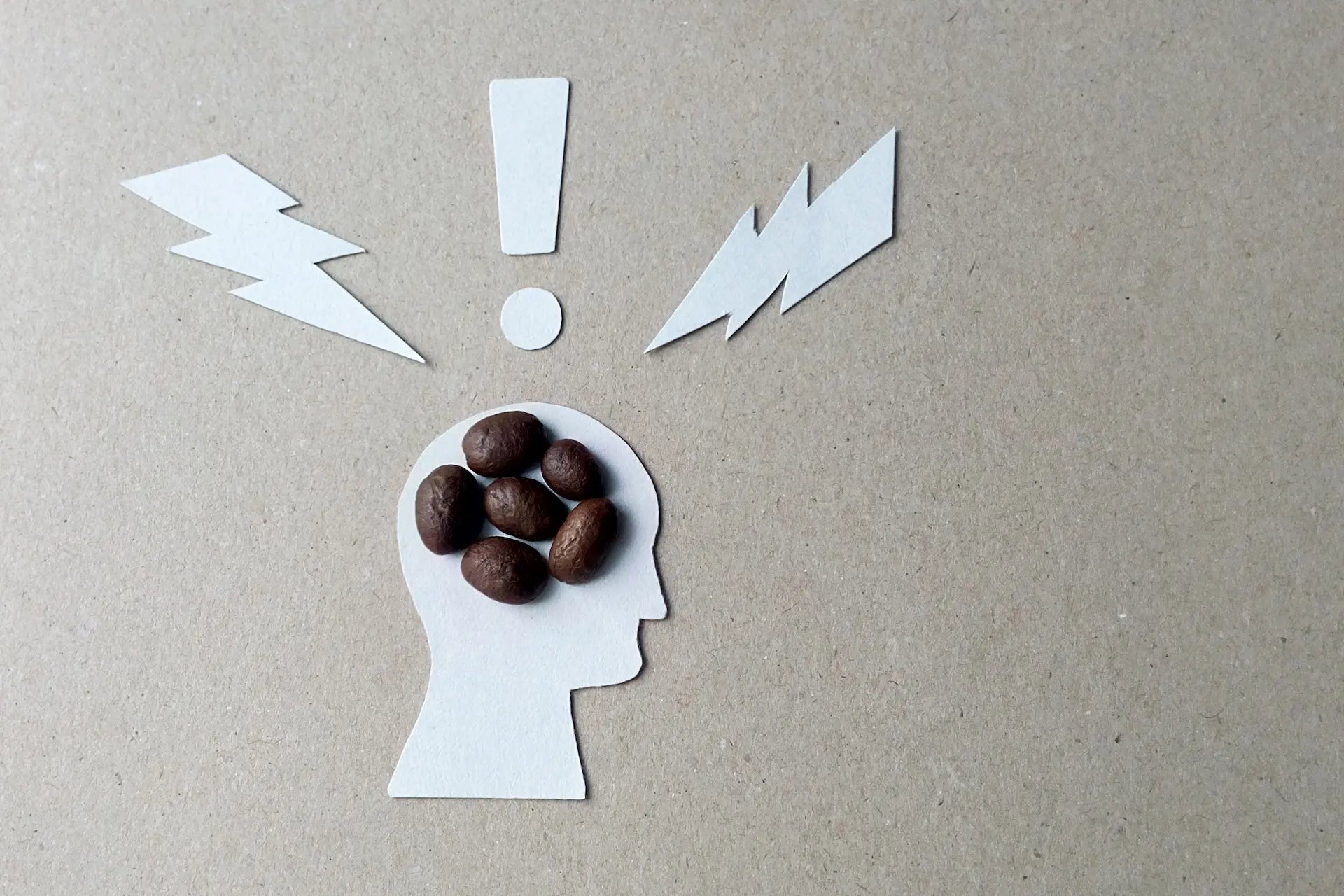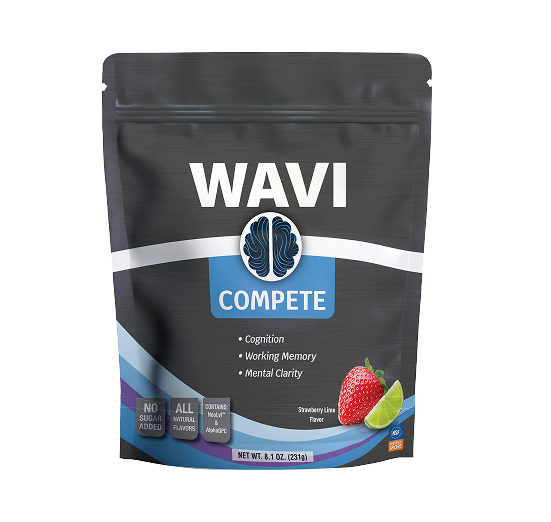What is a Nootropic Supplement?

If you’ve ever wished for sharper focus, better memory, or more mental energy to power through the day, you’re not alone. That’s where nootropic supplements come in. Nootropics are natural or synthetic compounds designed to support cognitive function, mood, and overall brain health. From students and professionals to athletes and busy parents, more people are turning to nootropics as a safe way to unlock their mental edge. In this article, we’ll uncover what nootropics are, how they work, and the best ones you can try for enhanced health.
What Are Nootropic Supplements?
Nootropics are a wide range of substances, often nicknamed “smart drugs,” that boost cognitive function and performance, increase focus, protect brain cells, and enhance brain cell communication and memory. Nootropic supplements can be natural, semi-synthetic, or synthetic compounds that boost cognitive functioning.
It’s essential to point out that while nootropics are sometimes referred to as “smart drugs,” there is a difference between pharmaceutical drugs and supplements. We’ll discuss the difference later on. In this article, we’re focusing on nootropic supplements that you can get without a prescription.
What Do Nootropic Supplements Do? 6 Possible Benefits
Nootropic supplements are packed with countless benefits for people of all ages. Nootropics are often used to help with a range of cognitive concerns, from mild fatigue to attention deficit hyperactivity disorder (ADHD). Here are 6 benefits you could experience by using nootropic supplements:
- Enhance Memory: Certain nootropics support neurotransmitters like acetylcholine, which are involved in learning and recall, making it easier to retain and access information.
- Sharpen Focus & Productivity: Nootropics can help reduce distractions and sustain mental clarity for more extended periods by improving blood flow to the brain and balancing brain chemicals.
- Boost Mood: Some nootropics regulate serotonin and dopamine levels, which may ease stress, promote emotional balance, and increase overall well-being.
- Improve Athletic Performance: Nootropics that enhance oxygen utilization and reduce mental fatigue can sharpen reaction times and improve motivation during training or competition.
- Promote Brain Health: Antioxidant-rich nootropics protect brain cells from oxidative stress, while others encourage neuroplasticity and long-term cognitive resilience.
- Increase Energy: Many nootropics work at the cellular level to support healthy mitochondrial function, reducing mental fatigue and helping you feel more energized throughout the day.
A List of Common Nootropic Supplements
1. Caffeine
Caffeine-containing beverages, such as coffee or tea, have stimulant effects that could boost mental energy and focus. Caffeine works by blocking adenosine, a compound that causes fatigue. Due to its side effects, there is some debate about whether caffeine is a true nootropic. However, low doses of caffeine are becoming increasingly popular, producing greater cognitive benefits and fewer jitters, especially if mixed with L-theanine.
2. L-Theanine
L-theanine is an amino acid found in green and black teas. It is recognized for its anti-stress effects and ability to produce a relaxed yet focused mental state. L-theanine is often taken with caffeine since it helps enhance the stimulant benefits while reducing the frequent jitters associated with caffeine. One trial in 2019 involving 30 adults found that L-theanine could support cognition and reduce stress.
3. Ginkgo Biloba
Ginkgo biloba is a commonly ingested herb from the maidenhair tree, native to China. It’s widely used for short-term memory and thinking skills, and it can also boost circulation, decrease inflammation, and act as an antioxidant. Ginkgo biloba is thought to increase cerebral blood flow, essential for cognitive functioning.
Does ginkgo biloba actually work? While research is still being done on this herb, a few promising studies have been published about its effectiveness:
- One study on mice in 2021 found that herbal supplements may act as a protective measure, helping improve brain functioning.
- Another 2023 review analyzed 1,642 participants across 18 controlled trials. The results showed that ginkgo biloba in combination with dementia medication could improve vocabulary. More research was recommended after the study.
- In 2002, researchers studied the effects of ginkgo biloba supplementation in cognitively healthy adults aged 60 and older. Participants took ginkgo biloba supplements, and the study found that they helped reduce age-related decline in brain function.
- A revised 2020 research study concluded that 240 mg of ginkgo biloba daily for 24 weeks may improve cognitive function in people with mild dementia.
These studies show that ginkgo biloba can effectively improve cognitive function, but it’s also essential not to be viewed as a cure-all. Nootropic supplements, like ginkgo biloba, should complement, not replace, a healthy lifestyle. Balanced nutrition, regular exercise, quality sleep, and stress management remain foundational to brain health. While ginkgo biloba may provide support, long-term cognitive well-being depends on a combination of healthy habits and, when needed, professional medical guidance.
4. nooLVL® (Inositol-Enhanced Bonded Arginine Silicate)
nooLVL® is a patented, non-stimulant nootropic developed by Nutrition21, and it’s a complex of Bonded Arginine Silicate (ASI) and Inositol, which are designed to improve cognitive function and energy. ASI is a bioavailable form of arginine, which increases nitric oxide production and enhances blood flow. In turn, the increased blood flow delivers more oxygen and essential nutrients to the brain, supporting cognitive function. The inositol in nooLVL® helps balance and stabilize the ASI, which makes it more effective.
nooLVL® was the first ingredient to be clinically studied in gamers to support their cognitive needs. A 2021 double-blind, placebo-controlled crossover study tested nooLVL® (Inositol-Enhanced Bonded Arginine Silicate) in 26 experienced gamers. Participants who took nooLVL® showed significantly faster reaction times, improved working memory, and better accuracy than placebo, both before and after an hour of gaming. The results suggest nooLVL® may enhance short-term cognitive performance, particularly in tasks requiring focus, speed, and decision-making.
5. Creatine
Creatine is an amino acid naturally occurring in the body, primarily in muscles and small amounts in the brain. It is a popular nootropic supplement but is also found in animal products, including meat, fish, and eggs. Athletes have long used creatine to energize muscle performance and boost athletic performance.
Here’s the evidence that supports the effectiveness of creatine:
- A 2020 systematic review examined the effects of creatine supplementation specifically in vegetarian athletes. It found that adding creatine increased creatine and phosphocreatine levels in muscles and blood, sometimes even more so than in omnivores. It helped improve lean muscle mass, strength, endurance, and even brain functions, like memory recall and general intelligence. Overall, the review suggests that vegetarians are particularly likely to benefit from creatine supplementation.
- A 2024 research study showed that creatine supplementation enhanced memory and processing time but didn’t significantly improve overall cognitive performance.
- A 2021 review study examined creatine and its effects beyond sports performance. Researchers found that creatine supplementation may boost strength and exercise capacity, support brain health, regulate blood sugar, and help maintain muscle as people age. The results suggest that creatine can be a safe and effective supplement for both physical performance and long-term health.
6. Omega-3 Fatty Acids
The brain is about 60% fat, so it’s no surprise that Omega-3 is on the list of effective nootropic supplements. Docosahexaenoic acid (DHA) is the Omega-3 associated with brain health.
Does omega-3 actually work to improve cognitive functioning? Here’s the evidence that supports that claim:
- A review article from 2016 examined docosahexaenoic acid (DHA), an omega-3 fatty acid critical for brain health across the lifespan, and found that modern diets often lack adequate amounts. Evidence highlighted includes the MIDAS trial, in which adults over 55 with memory complaints who took 900 mg/day of DHA for 6 months showed significant improvements in memory and learning compared to placebo. Overall, DHA intake supports cognitive function from development through aging.
- Another 2022 systematic review of nine randomized controlled trials found that omega-3 supplementation, including DHA and eicosapentaenoic acid (EPA), generally improved learning, memory, cognitive well-being, and brain blood flow, particularly in older adults, lonely individuals, or those with lower baseline cognitive function, while being well-tolerated and low-risk. Some studies also reported increased hemoglobin oxygenation in the brain, reduced memory errors, and prevented loneliness-related memory decline.
Omega-3 is traditionally sourced from fish, but can also be obtained from plant-based sources like flaxseed, chia seeds, walnuts, and algae, which are direct and sustainable sources of DHA and EPA.
7. Tyrosine
L-tyrosine is a popular type of nootropic that’s known to boost mental performance, especially when under stress. It can also enhance memory, focus, and processing time in high-pressure scenarios. L-Tyrosine is an amino acid that is the raw material for producing key neurotransmitters, dopamine, norepinephrine, and epinephrine, which regulate mood, focus, motivation, and stress response. Under stress, the brain depletes these chemicals faster than it can replenish them, leading to fatigue and mood imbalances. Supplementing with L-Tyrosine supports this production pathway (Tyrosine → L-DOPA → Dopamine → Norepinephrine → Epinephrine), helping maintain optimal brain function during demanding conditions.
In a double-blind, randomized, placebo-controlled study with 22 healthy adults, L-tyrosine supplementation significantly reduced task-switching costs, indicating improved cognitive flexibility, during the proactive control condition (long preparation interval), but not under reactive conditions (short interval). This suggests that tyrosine may enhance goal-directed cognitive control by supporting dopamine-mediated preparatory processes in demanding task environments.
Nootropic Supplements vs. Prescription Nootropics
While prescription nootropics like Adderall, modafinil, or donepezil can sharpen focus or support cognitive decline, they often come with a long list of side effects and the need for strict medical supervision. These drugs are designed for specific conditions, not everyday performance, and relying on them can sometimes create more risks than benefits.
Nootropic supplements, on the other hand, offer a safer, more natural path to cognitive support. Options like L-tyrosine, omega-3 fatty acids, or herbal extracts such as ginkgo biloba work with your body to nourish the brain, promote balanced neurotransmitter function, and build resilience against stress. Instead of forcing short-term performance, supplements help support long-term brain health, giving you sustainable focus, clarity, and energy without the crash.
How to Choose the Best Nootropic Supplements
With so many nootropic supplements on the market, it’s important to know what sets the best apart. Here are a few things to look for:
- Evidence-Based Ingredients: Choose supplements that include well-researched compounds like L-tyrosine, L-theanine, or omega-3 fatty acids.
- Quality and Purity: Look for products that are third-party tested or certified to ensure they’re free from contaminants and contain what the label claims.
- Synergistic Formulas: The most effective nootropics combine ingredients that work together for focus, memory, energy, and stress resilience.
- Trusted Certifications: Certifications like NSF Certified for Sport® guarantee a higher standard of safety and reliability.
This is where Wavi COMPETE shines. Not only is it NSF Certified, but it also brings together key ingredients like L-tyrosine, Alpha-GPC, L-theanine, and ginkgo biloba—all of which support mental clarity, focus, and resilience under pressure. It also blends nooLVL® for enhanced blood flow and mental processing, beetroot powder for vascular and cerebral support, plus a smooth, low-caffeine energy kick that avoids jitters or crashes. Our product is a clean, competition-ready formula you can trust. Try Wavi COMPETE and feel the difference.
Try Nootropic Supplements & Feel the Difference
Your brain is your most powerful asset, and giving it the right support can transform how you think, focus, and feel every day. Nootropic supplements are a safe, natural way to boost mental clarity, protect long-term brain health, and help you perform at your best, without the risks of prescription drugs. If you’re ready to experience sharper focus, steadier energy, and a more resilient mind, try adding nootropic supplements to your routine and feel the difference for yourself.




